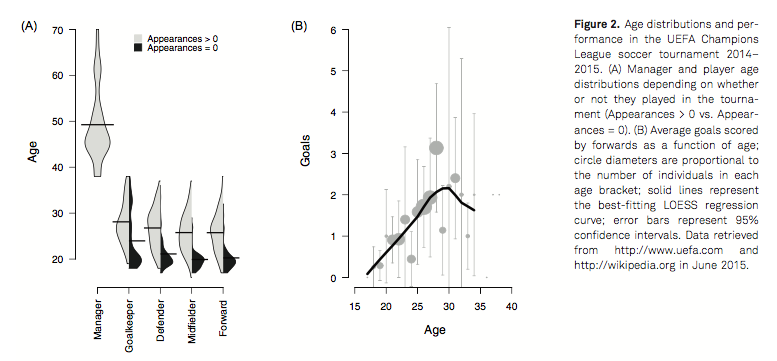Ralph Hertwig and I have written an ecological manifesto on how to study age-performance relations! We argue for the need to understand environment structure to predict whether older adults will do well (or poorly) in specific contexts and present some fun examples like aging in soccer and politics (title and abstract below)!
Towards an Ecological Perspective on Age–Performance Relations
The layperson’s view associates aging with biological and cognitive losses, which could be associated with decrements in work productivity and overall contributions to society. In turn, ecological approaches to life span development suggest that successful performance can result from an adaptive employment of an individual’s physical, cognitive, or social capital in the appropriate environment. This ecological framework suggests that one must understand the demands of particular ecologies (i.e., niches) to predict whether aging is associated with failure, maintenance, or even improvements in performance. We provide examples that illustrate the importance of an ecological approach to understanding adaptation to challenging decision tasks both in the laboratory and in the wild. Overall, we propose that there are specific strategies and niches that can help older adults thrive and that more work is needed to understand the exact characteristics that lead to good performance in old age.

Be the first to leave a comment. Don’t be shy.